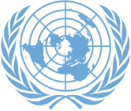Mr. President
Your Excellencies
I would like to offer my congratulations to our President on his election. In doing
so, I assure all our fellow members of Brunei Darussalam’s continued strong support for
the United Nations.
Mr. President,
Much of the attention at almost every great international meeting for the past four
years has been given to the inhuman acts of global terrorists. Inevitably, this has focused
on specific events. This is understandable, of course and we in Brunei Darussalam again
add our voice to the condemnation of all such actions. We offer our deepest condolences
to the families of all who have suffered loss.
Nevertheless as we meet our respected fellow members of the United Nations, we
again state what we have continued to state ever since the onset of the current wave of
global terrorism.
These brutal attacks extend beyond personal grief and national condemnation.
They are symptomatic of many grave threats the people of the world face today. As such,
they constitute nothing less than an attack on world order.
For this reason, Mr. President, we believe it is high time world order asserted
itself in modern terms.
In other words, a new, revitalized United Nations is called for - not for us as
Heads of State; nor for our diplomats; nor for any of us who are privileged and have the
means, the education, and the opportunity to live in hope and confidence. A new United
Nations is needed by the ordinary citizens we are privileged to represent here.
If world order is indeed under attack, that means ordinary people and their
families are under attack and, in far too many ways, it is not merely an attack. It is a fullout
assault.
3
It comes not merely from criminal terrorists. It comes from many aspects of
globalization; from international crime; from new technology; from social and cultural
disruption; from a rapidly degrading environment; and from the grave threats posed by
the possible spread of fearful new diseases. In real, immediate human terms, it comes
from fear, injustice, a loss of absolute values and from sheer rage. It is revealed in
feelings of hopelessness and an almost total loss of confidence.
Many of us here, especially those from small developing nations, are therefore
convinced that world order must be dramatically strengthened.
As I stated at the high level plenary meeting two days ago, there is no greater way
to begin this process than for each of us to achieve the millennium development goals.
For this reason, we in Brunei Darussalam will do whatever we can to achieve them in our
own country and help our neighbours do likewise.
Mr. President,
In setting the millennium goals, we have recognized that, to re-establish world
order, the root causes of anger, despair, injustice and hatred must be addressed. I would
therefore once more like to commend the Secretary-General and his staff and all the
United Nations agencies, both professional and volunteer, for all they have done in the
field to deepen our understanding of these causes.
These have become clearly defined in all their urgency. They are political, social,
cultural and economic. In each case, we do not believe that solutions can be imposed.
When the international community is so gravely divided on matters such as nuclear
development, arms proliferation, globalization, the environment and social injustice, this
body must be the judge of whether international conduct is acceptable. Solutions to
international problems must come from a truly United Nations acting in concert.
In other words - an efficient world organization committed to solving root causes
and to insisting that dialogue and negotiation are the sole means of settling disputes, no
matter how long it takes, and no matter how frustrating the process may be.
The global crisis arising from finding the best way to deal with modern,
technologically-fuelled terrorism highlights this need.
For many years, we have maintained that understanding root causes must be a
very important part of any long-term approach to terrorist activities.
Of course, every possible form of bilateral and multilateral cooperation is needed
to deal with the criminals involved. But condemnation is not enough and legislation is
never sufficient. Any justification for acts of terrorism must be resolutely countered, not
by exchanges of opposing definitions of evil but by determination to remove any possible
root cause that some may wrongly see as justifying such acts.
4
That is very difficult. It requires consensus here at the United Nations as to what
constitutes injustice, especially historic injustice and what constitutes unfairness.
That, in turn, demands a new reformed United Nations.
Mr. President,
We are a small nation. Our interest lies in working closely with all other
members. For this reason, we shall offer whatever help we can to building the broadest
possible consensus in all the many far-reaching decisions that this organisation is
currently called upon to make.
The most important of these decisions at present concern the question of United
Nations reform. Like many fellow members, we have long given this our strong support.
In recent months, however, we have held discussions with many colleagues that go far
beyond matters of principle. They deal with specific proposals.
Most of these aim at re-designing the structure of the organisation up to and
including the Security Council. Our response has been the one we have always offered.
We will listen with respect; we will acknowledge the good faith of all fellow members;
and we will help in any way we can to achieve the broadest possible consensus.
This, we think, is not a matter of opting out of the hard decisions that have to be
made. On the contrary, we believe it serves to recognize how hard those decisions are
and how important this body is to the world.
The consensus that was reached sixty years ago was a strong one. It served the
world well for many decades. It now appears very clear that, although its structure is still
in place, the world has changed enormously. A new consensus is being sought.
Unlike the one reached at the end of World War Two, it is not directed at the
means to maintain peace. It is aimed at creating the conditions for lasting peace. We see
this as the only way for the United Nations to bring all the forces of violence and
inhumanity back within a strong and just world order.
When it is time for this assembly to decide, we in Brunei Darussalam will be
considering any motion in this light.
Thank you.


